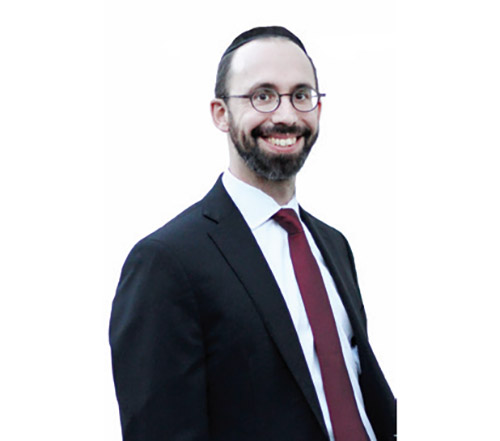
Parents invest thousands of dollars in the education of their children, seeing it as a critical tool in their success. Schooling is not the only component in the development of successful children, however. A yeshiva will give the child a good education, but the relationship of parent to child and the environment and atmosphere of the home is what truly molds a child’s character.
Our children spend many hours a day at school, but it’s their home that serves as their foundation for a happy, well-adjusted and productive life.
Looking at our leaders involved in bringing us out of Mitzrayim, we see Moshe Rabbeinu, who led us out and brought down the Torah; Aharon Hakohen, who was Moshe’s partner and became kohen gadol; and Miriam, the leader and role model for all the Jewish women. Remarkably, all these unparalleled leaders…were siblings!
How did Amram and Yocheved, the parents of these three, merit that their children be the leaders and pillars of klal Yisrael? What components of their home helped nurture these spiritual giants?
Let’s look at Yocheved. Pharaoh decreed that she and her daughter, Miriam—the midwives of the Jewish people—kill all the Jewish boys at birth. Yet, Yocheved and Miriam defied their orders, ignoring the most powerful ruler on earth. The verse says, “Vatireina Hamiyaldos es HaElokim, The midwives feared Hashem” (Shemos 1:17). Their fear of Heaven (“yiras shamayim”) would simply not allow them to perform such a terrible crime, no matter what the penalty might be.
It’s very rare that the Torah specifies the reward for an action in this world. Here, the Torah does so. It says because the midwives feared Hashem, He made houses for them. These are not physical homes, but rather the three empires of klal Yisrael: kehuna (priesthood), Leviim (Levites) and malchus (royalty).
Why are these virtual empires called “houses”? The Kotzker Rebbe quotes Yeshaya Hanavi, saying, “Yiras Hashem hi otzoroh” (Yeshaya 33)—the fear of Hashem is the storehouse…for one’s Torah and mitzvos. Anything precious that we own we keep in a safe place. We don’t want it to disappear or get damaged. Yiras Hashem surrounds and keeps fresh our commitment to Torah and mitzvos.
Rav Gedalia Schorr adds that fear of Hashem is also called “home.” Just like a house surrounds and protects a person, so too does yiras Hashem safeguard a person. Further, a home is much more than just a building. It’s the environment that helps create us in an ongoing manner, an evolving and growing expression of who we truly are. In the case of Yocheved and Miriam, their home was totally suffused with yiras shamayim. This was the atmosphere that nourished Miriam, Aharon and Moshe to grow into the spiritual and leadership giants they became.
Reb Yerucham Levovitz, zt”l, the renowned Mirrer mashgiach, explains that fear of Hashem is not a possession that we own. It’s a trait that we gradually acquire, reinforce and expand. We have an obligation to build our yiras shamayim. Even for Yocheved and Miriam it was a product of hard work to reach their lofty status, which allowed them to stand up to the threats of Pharaoh.
By working on our spiritual development we create a legacy for our children and grandchildren. Indeed, among the first words we teach our children to say each morning are “Reishis chochma yiras Hashem”—the first step to wisdom is fear of Hashem. While we should always make our best efforts, it’s the Almighty who ultimately decides all that happens in the world. But what’s always in our control is what we do and how we react; that must always reflect our yiras Hashem.
Life will often present us with choices, and it’s tempting to opt for the easier path. Yet, our decisions not only impact us, they affect our offspring as well. My paternal grandfather, Mr. Helmut Bodenheim, emigrated from Germany to America in 1938. He was told he had to work on Saturday to hold any job. But my grandfather wouldn’t hear of it and remained firm in his faith and his principles. A week ago, my family got together for his yahrzeit. As I looked around the table, with a large Torah-observant family from both America and Eretz Yisrael, I was amazed at the beautiful legacy my grandfather created. No doubt it was the commitment to Torah and yiras shamayim in his home that nurtured the values thriving in the homes of his descendants.
Our schools and our yeshivos are vital partners in the growth of our children and families, but it all starts in the home. Making clear choices for ourselves, based on love and fear of Hashem, builds a “home” that children will be anchored to forever and will pass on to their own families as well.
By Rabbi Baruch Bodenheim
Rabbi Baruch Bodenheim is the associate rosh yeshiva of Passaic Torah Institute (PTI)/Yeshiva Ner Boruch. PTI has attracted people from all over northern New Jersey, including Teaneck, Bergenfield, Paramus, Rockaway and Fair Lawn. He initiated and continues to lead a multi-level Gemara learning program. Recently he has spread out beyond PTI to begin a weekly beis midrash program with in-depth chavrusa learning in Livingston and Springfield. This year he joined Heichal Hatorah in Teaneck as a Gemara iyun rebbe. His email is [email protected].










